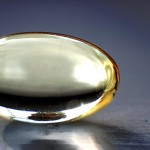
Calcium is the most abundant mineral in the body. It is essential for the development and maintenance of strong bones and teeth; roughly 99% of calcium in the body is deposited in these two places. Calcium also helps the heart, nerves, muscles, and other body systems work properly. To function correctly, calcium must be accompanied by several other nutrients including magnesium, phosphorous, and vitamins A, C, D, and K.
The best sources of calcium are foods but supplements may be necessary for those who cannot meet their calcium needs through diet alone. In fact, according to the National Institutes of Health, many Americans consume less than half the amount of calcium recommended to build and maintain healthy bones.
Heavy use of caffeine can diminish calcium levels; therefore, higher amounts of calcium may be needed if you drink a lot of coffee. Also, a diet high in protein can increase loss of calcium through the urine. Excessive intake of sodium, phosphates (from carbonated beverages) and alcohol, as well as the use of aluminum-containing antacids also contribute to increased excretion of calcium.
Calcium deficiency can be found in people with malabsorption problems, such as Crohn’s disease, celiac disease, and surgical intestinal resection. Prolonged bed rest causes loss of calcium from the bones and the elderly are less able to absorb calcium.
Obtaining adequate calcium can help prevent and/or treat the following conditions:
Osteoporosis: An inadequate supply of calcium over the lifetime is thought to play a significant role in contributing to the development of osteoporosis. Calcium is necessary to help build and maintain healthy bones and strong teeth. Studies have shown that calcium, particularly in combination with vitamin D, can help prevent bone loss associated with menopause, as well as the bone loss experienced by elderly men. If adequate amounts of calcium are not being obtained through the diet, calcium supplements are necessary.
Premenstrual Syndrome (PMS): Calcium levels often measure lower the week prior to one’s menstrual period compared to the week after. Studies suggest that calcium supplementation helps relieve mood swings, food cravings, pain or tenderness, and bloating associated with premenstrual syndrome.
High Cholesterol: Preliminary studies in animals and people suggest that calcium supplements, in the range of 1,500 to 2,000 mg per day, may help to lower cholesterol. The information available thus far suggests that keeping cholesterol levels normal or even low by using calcium supplements (along with many other measures such as changing your diet and exercising) is likely to be more beneficial than trying to treat it by adding calcium once you already have elevated cholesterol. More research in this area is needed.
Stroke: In a population based study (one in which large groups of people are followed over time), women who take in more calcium, both through the diet and with added supplements, were less likely to have a stroke over a 14 year time course. More research is needed to fully assess the strength of the connection between calcium and risk of stroke.
The richest dietary sources of calcium include cheeses (such as parmesan, romano, gruyere, cheddar, American, mozzarella, and feta), wheat-soy flour, and blackstrap molasses. Some other good sources of calcium include almonds, brewer’s yeast, bok choy, Brazil nuts, broccoli, cabbage, dried figs, kelp, dark leafy greens (dandelion, turnip, collard, mustard, kale, Swiss chard), hazelnuts, ice cream, milk, oysters, sardines, canned salmon soybean flour, tahini, and yogurt.
Foods that are fortified with calcium, such as juices, soy milk, rice milk, tofu and cereals, are also good sources of this mineral.
Calcium may also be obtained from a variety of herbs, spices, and seaweeds. Examples include basil, chervil, cinnamon, dill weed, fennel, fenugreek, ginseng, kelp, marjoram, oregano, parsley, poppy seed, sage, and savory.

















